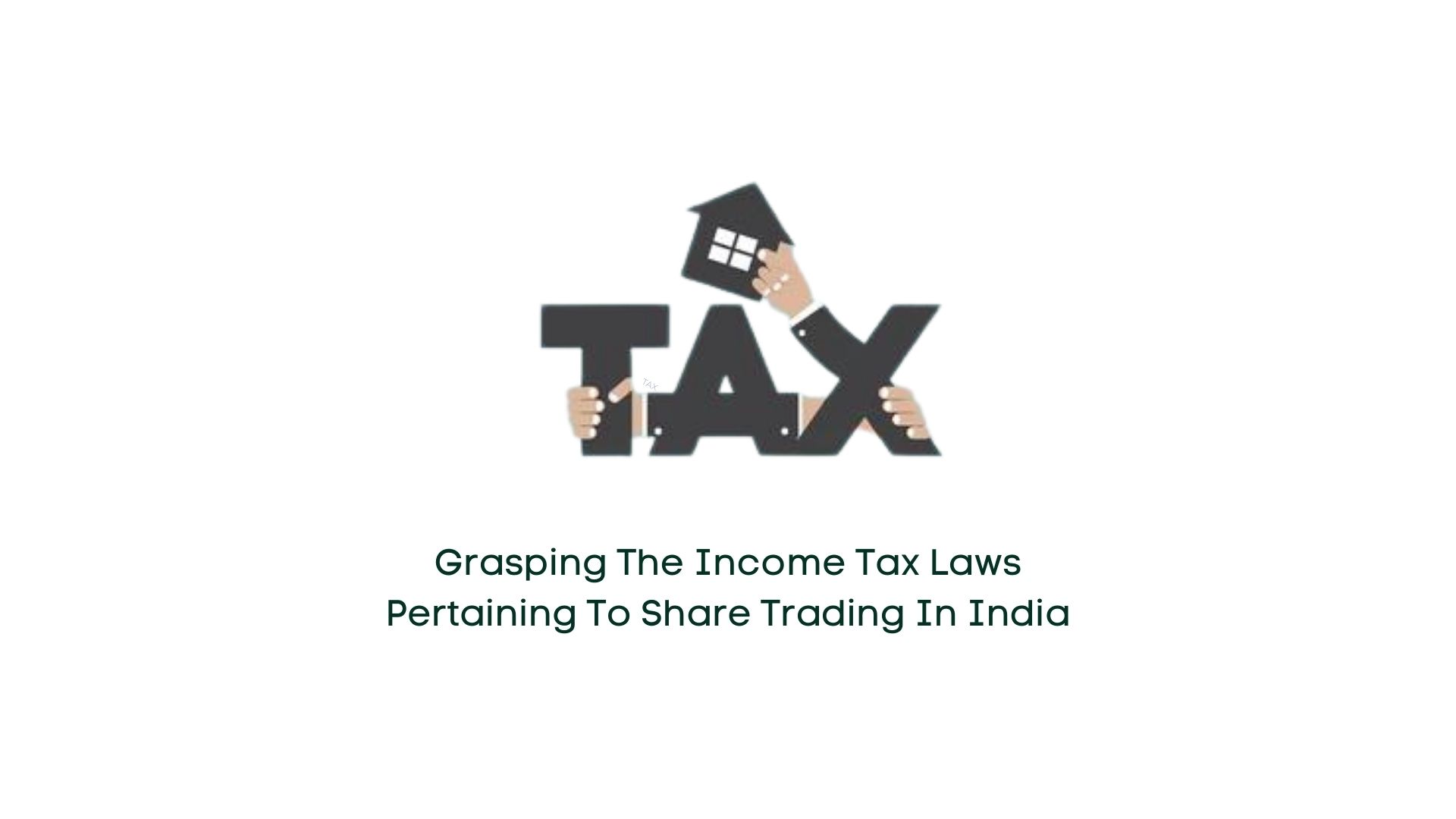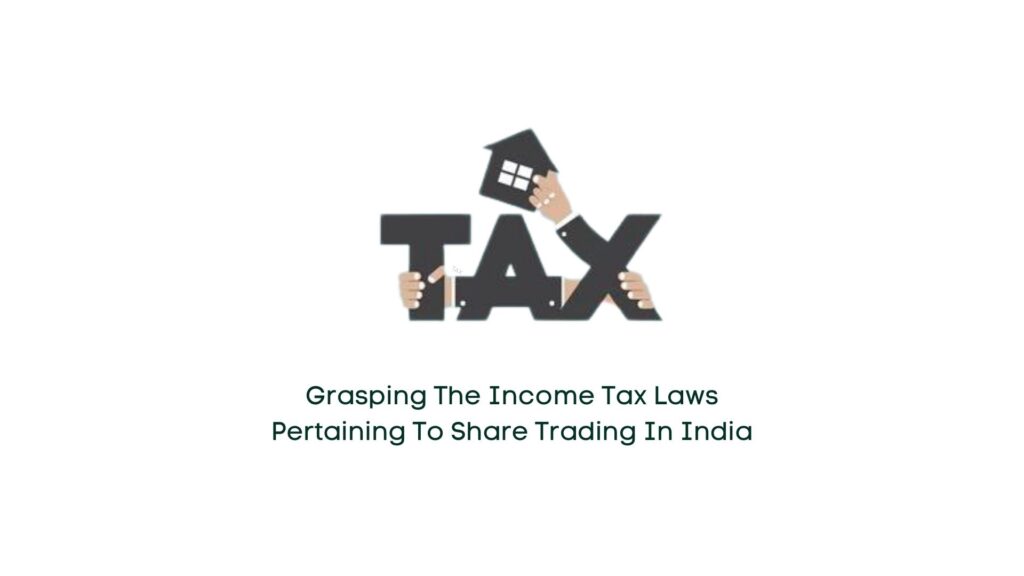
28 Feb Grasping the Income Tax Laws Pertaining to Share Trading in India

In the realm of income taxation in India, there exist distinct categories under which income is assessed and taxed as per the relevant provisions. These categories encompass salaries, House Property, PGBP (Profit and Gains from Business or Profession), Capital Gains, and Other Sources. This discussion will delve into the facets of income tax applicable to share trading activities falling under the head of Capital Gains. Share trading, a widespread practice across diverse demographics, offers the convenience of execution from one’s abode.
Deciphering Capital Gain/Loss for Taxation on Share Trading:
To embark on the calculation of Income Tax concerning stock trading, the initial step involves evaluating the amount subject to taxation. Analogous to any transaction, capital gain or loss is determined through the comparison between the sale and purchase prices.
Now, the discourse shifts towards understanding Short Term and Long Term Assets.
Interpretation of Short Term and Long Term Assets:
Short Term Asset: In the context of shares, the following durations determine their classification as short term capital assets:
- 12 Months: Shares (equity or preference) listed on a recognized stock exchange, units of equity-oriented mutual funds, listed securities like Debentures and Government Securities, Units of UTI, and zero coupon bonds.
- 24 Months: Unlisted shares.
Long Term Asset: Any asset held for a duration exceeding the aforementioned periods qualifies as a Long Term Asset.
Comprehending Short Term and Long Term Capital Gain:
Short Term Capital Gain: This denotes the capital gain emanating from the sale of Short-Term Assets. The tax rate applicable is 15% for shares/units of equity-oriented mutual funds sold through a recognized stock exchange with STT paid on the sale. In the case of unlisted shares, it is taxed at normal rates.
Long Term Capital Gain: Capital gains arising from the sale of Long-Term Assets were tax-exempt until the Finance Act, 2018. As per the updated provisions:
- For listed securities, if the gain exceeds Rs. 1,00,000/-, the tax rate is 10% (without indexation benefit).
- For unlisted securities, the rates are 10% (without indexation benefit) and 20% (with indexation benefit).
Treatment of Long Term/Short Term Capital Loss:
The set-off and carry forward of losses incurred under Capital Gains are integral. Here’s the breakdown:
Short Term Capital Loss: It can be carried forward for 8 subsequent years and adjusted against any capital gains during this period.
Long Term Capital Loss: Before the Finance Act, 2018, Long Term Capital Losses were inconsequential. Post the Act, they are now eligible for carry forward and set-off against any long term capital gain for 8 subsequent years.
Adjustment to Basic Exemption Limit:
To address cases where capital gain income alone doesn’t breach the basic exemption limit, adjustments are made. These adjustments are:
- Capital gains (short term and long term) can be set off against the basic exemption limit.
- The remaining amount is taxed at the applicable rates for capital gains, post the adjustment of other income. This option is exclusive to resident Individuals/HUFs.
Claiming Deductions under Chapter VI-A against Capital Gains:
Deductions under sections 80C to 80U can be claimed against Short Term Capital Gains, while no deductions are admissible against Long Term Capital Gains.
Is Share Trading Income Business Income?
The classification of income from share trading as business income sparks debate. CBDT’s Circular No.6/2016 provides clarity:
- Income from listed shares/ securities treated as stock in trade by the assessee is considered business income.
- Listed shares held for over 12 months, if treated as capital gains, are not disputed by Assessing Officers.
- Unlisted shares are uniformly treated as Capital Gains irrespective of the holding period, except where transactions raise suspicion.
Conclusion:
Income tax on stock trading hinges on holding periods and sales mediums. Eligible taxpayers can leverage adjustments against the basic exemption limit/deductions for Short Term Capital Gains. Additionally, the taxpayer’s discretion plays a crucial role in categorizing share trading income as Capital Gain or Business Income, influenced by transaction volumes.


No Comments